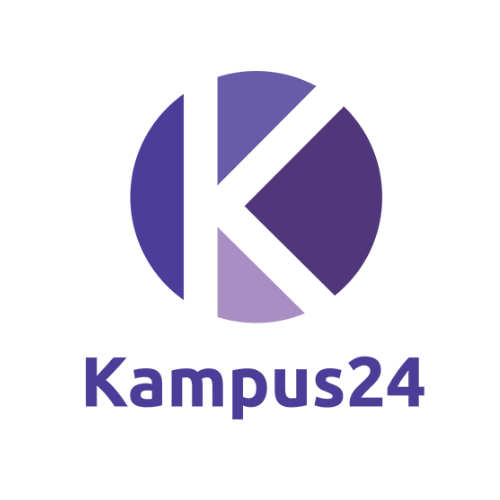Increasingly, educational writing on wellbeing is unclear and at times, contradictory. Schools are navigating ever more complex research and evidence sets, most of which may not even apply in our own contexts. Needless to say throughout this academic and professional discussion there is no uniform definition of “wellbeing”.
There is a wide choice of frameworks and research-based practices for schools to choose from, including Yale Center for Emotional Intelligence RULER framework, CASEL framework and Positive Education. However, there are often some key steps missed in assessing their alignment to a particular school context and aspects of the research that is not factored in. This does not mean inertia, however, but it should lead us to adopt a localised and community approach if wellbeing is to be embedded as a priority.
“Schools should make a clear distinction between intrapersonal and interpersonal student learning.”
There have been a number of rigorous pieces of research published in the last five years (most prior to the pandemic, which adds further dimensions) which can help to guide our thinking before we even consider further changes in our own community.
In December 2020, a meta-analysis was published which examined school-based “wellbeing” interventions. The programmes aimed to stimulate students’ intrapersonal (e.g., self-esteem) and interpersonal (e.g., school climate) development. The review suggested that schools should make a clear distinction between intrapersonal and interpersonal student learning.
“Frequently, the implementation method is the sole reason why approaches might not create the impact we hope.”
Our impact as educators is wildly different in each area and, therefore, focusing on areas where we have a high effect is going to have the most impact for our students. For example, the paper found schools to be excellent at the promotion of problem solving skills, which can build efficacy and improve school climates. However, schools were less impactful in developing individual student self-esteem.
This is likely because of the specialism required by psychologists and therapeutic processes, although educators often perceive they should be able to address such issues to alleviate student suffering. This area requires clear definition to ensure educators do not feel under undue pressure but do have a foundational round of skills, for example, the adoption of emotion coaching.
Research also suggests that, frequently, the implementation method is the sole reason why approaches might not create the impact we hope. A meta-analysis published in September 2017, examines this aspect. The paper reviews in detail school psycho-social interventions.
However, many evidence-based practices which have rigorous research behind them in school contexts fail due to how they were implemented. On many occasions, for instance, a lack of parental involvement was noted. Therefore, the method of creating change is just as important as the practice itself. This might read as a statement of the obvious and yet this is largely what researchers discovered time and again.
“Wellbeing needs are emerging as ever more complex and changing in how they manifest.”
The same report further suggests that schools should be cautious in adopting new approaches regardless of the evidence supporting them. One of the main reasons for this is that wellbeing needs are emerging as ever more complex and changing in how they manifest. Educators might not necessarily make the impact they seek to but paradoxically they also might reduce the high impact they can make by misdirecting time and attention to well-intentioned but ultimately ineffective wellbeing programmes.
It is clear that educators are increasingly expected to deliver broad-ranging wellbeing programmes but likely don’t have the background or professional learning to embed psych-social interventions. In trying to do so, we might undermine the worth of our craft as educators in the process.
So what does all this mean for how we should respond to this complex reality? What can we do to powerfully affect wellbeing?
The first step would be to trigger an inquiry about wellbeing which involves all members of your community: students, parents, colleagues (educators and non-educators), governors and any other connections the community might have in the context of the location in which you are based. The inquiry in and of itself is starting the process, or reinvigorating it, to pivot the focus to wellbeing. It can establish the language we use and the high regard with which we consider this central to our mission. An authentic inquiry gives time to read, grapple with, discuss, and evaluate the evidence and the current climate before planning action.
“Harnessing the creativity and knowledge of students’ experiences at the outset is vital.”
Students must be central to any developing framework or practices which emerge. There is a clear and present need for their agency. Spark UK is a wellbeing movement in the UK led by students to respond to the needs of their peers. Harnessing the creativity and knowledge of students’ experiences at the outset is vital. So often, conversations about student wellbeing take place in adult environments without the presence of the “inner circle.”
A clear vision of what you are working towards is, of course, invaluable. Harvard’s Science of Resilience work is powerful to redirect any community inquiry to, as it provides the components which students need to develop mental health protective factors:
- providing supportive adult-child relationships;
- scaffolding learning so the child builds a sense of self-efficacy and control;
- helping strengthen adaptive skills and self-regulatory capacities; and
- using faith and cultural traditions as a foundation for hope and stability.
There are many such frameworks which can provide a similar function as referenced earlier in this article. The reality of the Harvard work is that most wellbeing occurs at school in the culture of the types of experiences students have all day every day. For example, if every student has an opportunity to feel capable during each school day, we know this contributes greatly to long-term mental health protective factors, as does the provision of student choice.
“The research is nuanced and complex and requires huge investigation before applying it to any particular context.”
Helen Timperley’s collaborative inquiry model can be an inspiring framework for an educational inquiry alongside the broader community inquiry to examine how wellbeing practices are embedded into teaching and learning practices. This would allow all findings of the community inquiry to be mirrored and evaluated as classroom, relational and school culture practices.
It is clear that for wellbeing there is no easy fix. The research is nuanced and complex and requires huge investigation before applying it to any particular context. However, the journey and process is just as valuable for the community as the eventual frameworks and processes. The iterative and cycled nature of examining this emerging area is part of the joy and pain of the challenge of being in a human-centred profession.
References:
Yale Center for Emotional Intelligence RULER
This article first appeared in the latest edition of Wellbeing in International Schools Magazine, out now.




















